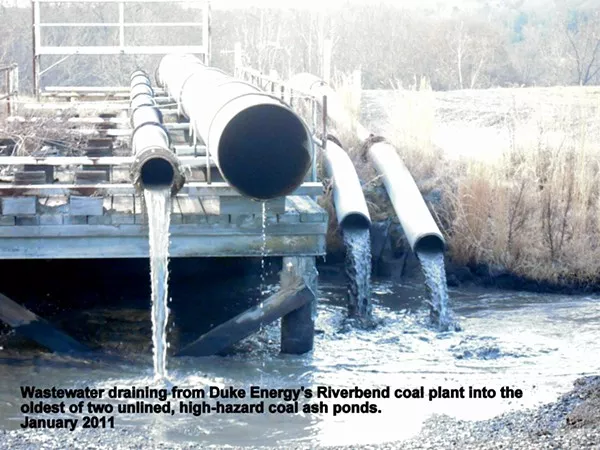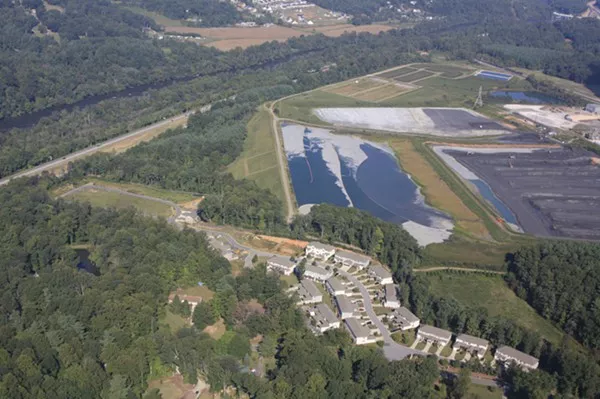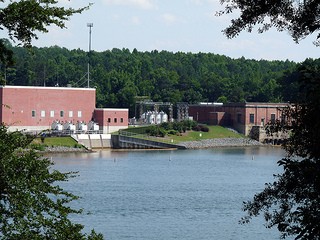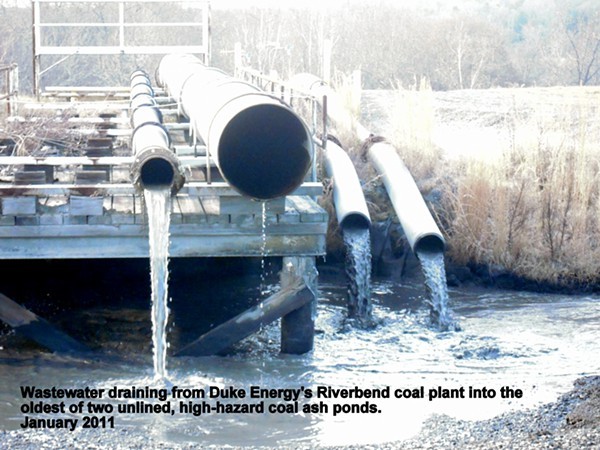Biz
Thursday, March 10, 2016
Biz / News Womack Publishing acquires three Virginia weekly newspapers
Posted By Jeff Hahne on Thu, Mar 10, 2016 at 9:47 AM
“We are pleased that we were able to acquire three outstanding community newspapers and continue the long tradition of public service they have provided their communities,” Womack Publishing Director of Operations Chad B. Harrison said.
Roger Bell will serve as regional editor of all three publications and Michael Campbell will serve as news editor, and digital media director for all three of the new acquisitions.
Based in Chatham, VA. Womack Publishing is a family-owned company that publishes 18 community newspapers in Virginia and North Carolina. Womack Newspapers, Inc., based in Greensboro, publishes YES! Weekly, Creative Loafing and the Jamestown News, bringing the group total to 21. Womack Publishing also publishes telephone directories, monthly magazines, visitors’ guides, as well as various digital media.
The Surry-Sussex Dispatch, The Dinwiddie Monitor and the Prince George Journal will join Womack Publishing’s other newspapers in the region, including The Independent-Messenger in Emporia, The Brunswick Times-Gazette in Lawrenceville Va., The South Hill Enterprise, The Warren Record in Warrenton, N.C., The News Progress in Chase City, Va. and The Lake Gaston Gazette-Observer in Littleton, N.C.
Womack Publishing Company’s other newspapers include The Star Tribune in Chatham, The Altavista Journal, Smith Mountain Eagle in Moneta Va., The Times-Virginian in Appomattox Va., The Union Star in Brookneal Va., The Caswell Messenger in Yanceyville, N.C., Mebane Enterprise in Mebane, N.C., The News Of Orange County, Va., in Hillsborough, N.C., and The Montgomery Herald in Troy, N.C.
Friday, March 6, 2015
Biz / Culture New vape escape in town — KURE Vaporium and Lounge comes to NoDa
Posted By Sara Workman on Fri, Mar 6, 2015 at 11:06 AM
Vapers gonna vape vape vape vape vape. Smoke it out. Smoke it out.
OK, maybe Taylor Swift isn’t singing about the growing art of vaping, but the enthusiasm surrounding this news is certainly appropriate.
This Saturday, March 7, KURE Vaporium and Lounge (based out of Mooresville) is having its second grand opening celebration this year, the first in Gastonia in late January.
The globally recognized business received $4.2 million in funding from Siskey Capital and is wasting no time expanding, hoping to open at least eight locations around the country this year — at least two more in Charlotte.
And of all places for a new business flourish in the Queen City, this one is making its debut in none other than NoDa.
Tuesday, December 9, 2014
Biz Goodness Cards: The harder-working holiday card
Posted By Emiene Wright on Tue, Dec 9, 2014 at 11:21 AM
Holiday cards keep your friends and family posted on changes in your life, address and weight if you include the seasonal photo. They remind folks that you don’t see regularly that you care. A new Charlotte-based company’s cards take that a step further, allowing you to show the causes you support some love, too.
Goodness Cards founder Nate Baum says that he’s from a family “obsessed with greeting cards,” but hated old-fashioned greeting card shopping.
“One of my least favorite things in the world was the process of going to CVS, looking at 3,000 cards to find the right one, getting glitter all over myself and paying seven dollars, all the while knowing it’s going to end up in the trash,” he says.
Friday, August 16, 2013
News / Biz Coal-ash settlement: Nearly 5,000 public comments received
Posted By Rhiannon Fionn on Fri, Aug 16, 2013 at 2:54 PM

- Ashley Phykitt
The deadline for commenting on the proposed settlement between the North Carolina Department of Environment and Natural Resources and Duke Energy regarding coal-ash contamination came and went earlier this week. The department is reporting that 4,933 public comments were received and that they'll soon be posted online in the same place that the rest of the state's case against the energy giant have been posted.
Per an email I received from Susan Massengale, spokeswoman for the N.C. Department of Environment and Natural Resources (SIC throughout):
Wednesday, August 14, 2013
News / Biz Last day to comment on the Duke Energy coal-ash lawsuit settlement
Posted By Rhiannon Fionn on Wed, Aug 14, 2013 at 9:26 AM

- South Wings and Appalachian Voices
- Coal ash ponds near Asheville
Today is the last day to comment on the settlement that's been proposed between North Carolina's Department of Environment and Natural Resources and Duke Energy that could end the state's lawsuit over coal ash contamination in state waterways. To comment, all you have to do is email your remarks to lisa.palmer@ncdenr.gov.
Without getting too deep into the litigious weeds, Duke Energy has been sued several times by different entities in recent months over coal ash contamination polluting North Carolina waterways, including Mountain Island Lake, which is the main drinking water source for the Charlotte-metro area.
There are lawsuits pending in Mecklenburg and Wake counties and in federal court, but the aim of the litigants is the same in all cases: force Duke Energy to clean up coal ash impoundments that are contaminating state waterways.
It's important to note that whether or not the company's coal ash ponds are contaminating water isn't at issue - we already know that the state has more unlined, high-hazard coal ash ponds that any other state and that those ponds are contaminating groundwater and draining things like arsenic into bodies of surface water - as per the company's own record keeping. The real issue is whether Duke Energy's coal ash ponds are contaminating ground and surface water outside of compliance boundaries that sometimes end up in the very bodies of water the company claims it's not impacting.
In regard to the state's lawsuits against Duke Energy, the two entities have come up with a "settlement" (it's actually called a proposed consent order) that's pending in state court regarding the Department of Environment and Natural Resources' lawsuit against Duke Energy. In that lawsuit, the state alleges that the power company is contaminating water near both Asheville and Charlotte and that contaminated water is bad for humans and the environment.
It's the settlement for this lawsuit that the public has been invited to comment on, but today is the last day to do so. In great news, and as we pointed out before, the comment process is as easy as sending an email to lisa.palmer@ncdenr.gov. Seriously. That is all you have to do to have a say-so in one of the pending coal ash lawsuits against Duke Energy.
Review the state's documentation for this lawsuit here.
Susan Massengale of the N.C. Department of Environment and Natural Resources wrote in an email, "We encourage all interested groups and individuals to send us whatever documentation, data and additional materials they feel should be included that is related to this issue. It will all become part of the public record."
Massengale went on to explain how the public comments will be factored into the state's and the judge's decision-making process:
The public comment period lasts 30 days, until August 14. After that, staff will take 30 days to review the comments received and make recommendations for any appropriate changes to the document. A summary of the comments and the final proposed agreement will be given to the Superior Court judge presiding over civil actions. The judge can take whatever time he or she feels is appropriate to review the materials before making a decision.
Tuesday, July 23, 2013
News / Biz Kennedy on coal ash: 'We are living in a science fiction nightmare'
Posted By Rhiannon Fionn on Tue, Jul 23, 2013 at 2:51 PM
A report released Tuesday by Robert F. Kennedy, Jr.'s Waterkeeper Alliance and other environmental groups finds that coal plants are the largest source of water pollution in the U.S. based on the toxicity of their discharge into fresh water resources. And many of those plants are permitted to discharge unlimited amounts of pollutants known to be in coal ash such as arsenic, cadmium, boron, lead, mercury or selemium - all of which are known to cause serious health problems in humans.
According to the report, the U.S. Environmental Protection Agency and states already have all of the information they need in order to regulate coal ash and to protect the nation's drinking water resources.
"The only thing missing now is the political will," said Eric Schaeffer, executive director of the Environmental Integrity Project.
Last week in North Carolina, the state's Department of Environment and Natural Resources called for additional studies on coal ash pollution in a proposed settlement with Duke Energy over alleged water pollution in both Mountain Island Lake, Charlotte's main drinking water source, and the French Broad River in Asheville.
Here are the report's main points:
News / Biz A coal ash history lesson from the Queen of Coal Ash
Posted By Rhiannon Fionn on Tue, Jul 23, 2013 at 12:27 PM
Listen, I didn't mean to become the Queen of Coal Ash, but since I am, I feel obligated to remind y'all of the finer details involved in the ongoing melodrama of coal ash pollution in the U.S. and North Carolina.
And since we've got some real American royalty in town today - Robert F. Kennedy Jr., of the Waterkeeper Alliance - discussing Crown Town's coal ash issues, and since I got the title of Queen from from the Central Piedmont Sierra Club because I've been writing about the stuff for Creative Loafing for more than four years, I figured we'd give y'all a royal history lesson. (Look for news of RFK Jr.'s press conference later today.)
Coal ash is a big deal nationally and statewide. With Congress taking up the coal ash issue this week, debating a bill that would essentially prevent regulation of coal ash pollution federally, and the North Carolina General Assembly actively weakening environmental regulations as if we can buy another water source at Walmart, you'd think folks would be boned-up on coal ash. You'd think folks would give a shit about what's in their water, or that they'd notice a couple of coal ash ponds next door. But, alas, collective memory is short, and the water looks fine.
So, let's bolster the collective memory with a brief history of Charlotte's coal ash issues, shall we? We shall ...
- Starting sometime in the 1800s, drinking water is pumped from the Catawba River via the Catawba River Pump Station, in Charlotte, though the river has been an important drinking water source since time immemorial.
- Rhiannon Fionn
- Catawba River Pump Station
- In 1924, Duke Energy constructs Mountain Island Hydroelectric Dam, flooding the Catawba River to create Mountain Island Lake. The original Catawba River Pump Station is also flooded, so a new one is erected. (There's an even newer one in the same location today.)
- In 1929, Duke Energy's Riverbend coal plant comes online just in time for the stock market crash that shoves the United States into the Great Depression.
- In 1954, after the Depression and World War II, residents of the mill-style village that surrounded the plant - the same community that first built the plant, then ran it - begin complaining about "the plant's fly ash problem," (fly ash is a type of coal ash) according to the 1984 book Coming Home, found in Duke Energy's company library. That same year, the village is sold and moved, house by house.
- In 1957, the company builds its first of two unlined coal ash waste ponds. They catch the slurry that's created when coal fly ash (again, just another way of saying coal ash) is watered down in an effort to prevent it from escaping the plants' smoke stacks. Until a couple of years ago, they also caught waste water from the plant (think sewage). Its surface takes up 41 acres, and it is 80-feet deep.
- In 1963, the Clean Air Act is established.
- In 1972, the Federal Water Pollution Control Act of 1948 is amended to become the Clean Water Act.
- In 1986, Duke Energy adds a second, 28-acre, 70-foot-deep unlined coal ash pond to the Riverbend property. Man-made, earthen berms hold both ponds in place. The older pond fills up so much that roughly every 4 years it has to be excavated to create room for more coal ash.
- In 2000, the energy and waste management industries make a deal with the U.S. Environmental Protection Agency: The agency will promote the beneficial reuse (think concrete) of coal ash, states will retain the right to regulate coal ash, and companies will dig groundwater monitoring wells around their coal ash ponds and begin self-monitoring contaminants.
- In the 2000s, the Stonewater neighborhood goes up in Mount Holly (just a stone's throw from Charlotte) directly across the street from the coal ash ponds. Its residents complain about black dust coating their property.
- In December 2008, a massive coal ash disaster occurs in Kingston, Tenn. That same month, Duke Energy finally digs those groundwater monitoring wells around Riverbend's coal ash ponds, eight years after companies agreed to dig the wells.
- Also in 2008, American Rivers deems the Catawba River the "most endangered river in the country."
- 2009 was a big year for Riverbend, and not only because I began stalking the plant like an ex-boyfriend. It's the year that the U.S. Environmental Protection Agency begins investigating the plant's coal ash ponds, ultimately deeming them a "high hazard," which means people would likely die if they burst ... though engineering reports say that shouldn't happen. It's also the year that Appalachian Voices documents groundwater contamination beneath 13 coal ash ponds in North Carolina, including at Riverbend. And - there's more! Also in 2009: We learn that North Carolina has more high-hazard coal ash ponds than any other state. Holla! (Oh, wait. That's not good.)
- In 2010, North Carolina updates its coal ash regulations, requiring Duke Energy to sink more groundwater wells at its coal plants along the Catawba River - three are near Charlotte, and they all have coal ash ponds or other coal ash waste storage closeby.
- Also in 2010, Duke Energy's spending on lobbying against coal ash regulation spikes, according to OpenSecrets.org.
- In 2011, the Union of Concerned Scientists categorizes the Catawba River as "stressed," specifically because of the energy industry's usage of the river's waters.

Friday, July 22, 2011
News / Biz Happy 30th birthday, WFAE!
Posted By Rhiannon Fionn-Bowman on Fri, Jul 22, 2011 at 10:06 AM

The NPR affiliate plans to host an open house on Aug. 19, and all are invited (just be sure to RSVP). Here's the press release, which will fill you in on the station's history:
In 1981 WFAE 90.7fm hit the Charlotte airwaves with Morning Edition, All Things Considered, jazz and classical music from basement studios at UNC Charlotte. To commemorate this milestone, the station is hosting an open house at its studios in the University area on Fri., Aug. 19, 4-8 p.m.“This is an opportunity to thank members, listeners and businesses who have been so generous with their support,” said Roger Sarow, WFAE president and general manager. “We're privileged to be part of this community and look forward to serving for another 30 years.”
One of the evening's highlights is a recording of Charlotte Talks for future broadcast. At 6 p.m. Host Mike Collins will talk about the art of grilling with Peter Reinhart, Chef-on-Assignment at Johnson & Wales University, Scott Graf, WFAE Morning Edition host and amateur griller, and others. They'll discuss grilling equipment, what to grill, tried and true methods, and the latest grilling techniques.
The party will also feature tours, in-studio demonstrations, the music of Gena Chambers, hors d'oeuvres and cash bar. Admission is free. RSVP is requested at wfae.org/openhouse.
Although the station has evolved over the years, WFAE’s mission to provide Charlotte-area listeners with quality radio programming has remained the same.
WFAE 90.7fm Highlights 1981-2011:
When WFAE went on the air in 1981, the station was licensed to UNC Charlotte. By 1986, WFAE traded its campus basement studios for bigger basement studios in the newly-built One University Place. A state budget crisis and record revenue shortfall ultimately reduced state support for the station, and in 1993 WFAE separated from the university to become a community-licensed station. University Radio Foundation Inc., a volunteer board comprised of members from the community, became the stewards of the station. In 1995 WFHE 90.3fm signed on the air to better serve Hickory-area listeners.
In 1996 WFAE changed its daytime format of contemporary jazz to include news and information programming, such as The Diane Rehm Show, Fresh Air with Terry Gross and Talk of the Nation. The station launched its own local call-in program, Charlotte Talks with Mike Collins, in 1998.
As the 21st century began, WFAE embarked on technical projects to improve its signal coverage over Lake Norman and to become the first radio station in Charlotte to broadcast its signal using HD Radio technology. This cutting-edge technology allows WFAE to divide its signal into multiple streams. Jazz returned to the station on WFAE HD2 and an eclectic blend of rock, blues and more is available on WFAE HD3 .
In the midst of the Great Recession, demand for social agencies' services was soaring and budgets were slashed. To help Charlotte residents understand the charitable needs in the community, WFAE joined a coalition of media outlets called Charlotte: Mission Possible.
Thursday, July 21, 2011
News / Biz Bath & Body Works is under fire for using triclosan in its soaps
Posted By Rhiannon Fionn-Bowman on Thu, Jul 21, 2011 at 10:30 AM

But, the answer to their "wonderings" is YES.
Here's part the deal: Antibacterial soaps only kill most bacteria — which, by the way, isn't all bad. Then, the bacteria that is left becomes stronger and more resistant to the substance. As bacteria becomes stronger and more resistant, people become more susceptible to antibiotic-resistant, and often deadly, diseases like MRSA.
But, that's only one reason why triclosan should be considered poisonous:
Health and environmental groups have mounted a campaign against Bath & Body Works, urging the retailer to stop selling its line of “Summertime Scent” soaps that contain triclosan, a chemical categorized as a pesticide.Scientific studies have linked triclosan to hormone disruption, which could be hazardous to teenagers whose bodies are still developing.
"A chemical like triclosan that can disrupt hormones and may affect fetal growth and development does not belong in our soap," said Lisa Archer, director of the San Francisco-based Campaign for Safe Cosmetics at the Breast Cancer Fund. "Studies show that triclosan is no more effective at preventing illness or removing germs than soap and water."
The line, which includes products with names like "Tangelo Orange Twist" and "Sugar Lemon Fizz," is marketed to teenagers using the slogan "spread love, not germs."
According to the Breast Cancer Fund, major companies, including Johnson & Johnson, L’Oreal, The Body Shop, and Staples, are either no longer using the chemical or are phasing it out of products. Colgate-Palmolive has eliminated triclosan from its dishwashing liquids and Softsoap hand soaps, but continues to use the chemical in Total brand toothpaste.
Read the entire article here.
Friday, July 15, 2011
News / Biz Coal lawyers blame birth defects on inbreeding, deny coal's role
Posted By Rhiannon Fionn-Bowman on Fri, Jul 15, 2011 at 11:01 AM
In WOW! WTF?! news from Grist.org:
Babies born in areas with mountaintop-removal mining have higher rates of birth defects -- we know that from a study that came out last month. But, say coal companies, that doesn't mean the mining CAUSES the birth defects! They could easily be caused by something else -- like, say, rampant inbreeding.A letter from law firm Crowell & Moring, representing the National Mining Association, rebutted the study's findings by saying they failed to account for "consanquinity." That is not a thing, but "consanguinity" is inbreeding. And inbreeding is a nasty (and false) rumor about West Virginia, where a lot of mountaintop-removal mining takes place.
Read the entire post here.
I bring this up because here in Charlotte there's a good chance that every time you turn on your lights you're burning a piece of the Appalachian Mountains and, apparently, contributing to birth defects in the communities immediately surrounding those mountains.
That's your coal FYI for the day. Now, take a minute to find out where the electricity in your home and office comes from with this handy database from iLoveMountains.org.
Have a look at the people who are being accused of being inbred and learn a little bit about the history of coal protests at Blair Mountain. I think you'll agree that these people aren't simpletons. No, they're citizens standing up for themselves and exercising their rights.







